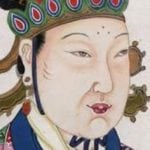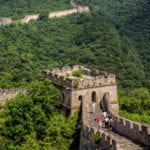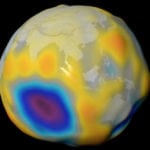 History
History  History
History  Health
Health 10 Everyday Activities That Secretly Alter Consciousness
 History
History Top 10 Historical Disasters Caused by Someone Calling in Sick
 Animals
Animals 10 New Shark Secrets That Recently Dropped
 Movies and TV
Movies and TV 10 Forgotten Realities of Early Live Television Broadcasts
 Technology
Technology 10 Stopgap Technologies That Became Industry Standards
 Weird Stuff
Weird Stuff 10 Wild Facts About Taxidermy That You Probably Didn’t Know
 Travel
Travel 10 Beautiful Travel Destinations (That Will Kill You)
 Miscellaneous
Miscellaneous 10 Modern Marriage Rituals Born from Corporate Branding
 Weird Stuff
Weird Stuff Ten Bizarre Visions of 2026 from Fiction
 History
History 10 “Modern” Problems with Surprising Historical Analogs
 Health
Health 10 Everyday Activities That Secretly Alter Consciousness
 History
History Top 10 Historical Disasters Caused by Someone Calling in Sick
Who's Behind Listverse?

Jamie Frater
Head Editor
Jamie founded Listverse due to an insatiable desire to share fascinating, obscure, and bizarre facts. He has been a guest speaker on numerous national radio and television stations and is a five time published author.
More About Us Animals
Animals 10 New Shark Secrets That Recently Dropped
 Movies and TV
Movies and TV 10 Forgotten Realities of Early Live Television Broadcasts
 Technology
Technology 10 Stopgap Technologies That Became Industry Standards
 Weird Stuff
Weird Stuff 10 Wild Facts About Taxidermy That You Probably Didn’t Know
 Travel
Travel 10 Beautiful Travel Destinations (That Will Kill You)
 Miscellaneous
Miscellaneous 10 Modern Marriage Rituals Born from Corporate Branding
 Weird Stuff
Weird Stuff Ten Bizarre Visions of 2026 from Fiction
Top 10 Fascinating Facts About The Nation Of Taiwan (“Real” China)
Taiwan is one of those countries most people in the West don’t know a lot about. This is partly due to Taiwan’s ability to stay out of the more negative aspects of international news, but it also has a lot to do with China.
Top 10 Creepy Things Happening Inside China
Whatever the reasons, unless you’ve been there, are from there, or know someone from Taiwan, odds are, you don’t know what an amazing country it is, and that it has a rich and fascinating history.
These ten facts don’t cover everything you should know about Taiwan, but it’s a great place to start learning about this amazing island nation.
10 Bubble Tea Was Invented In Taiwan
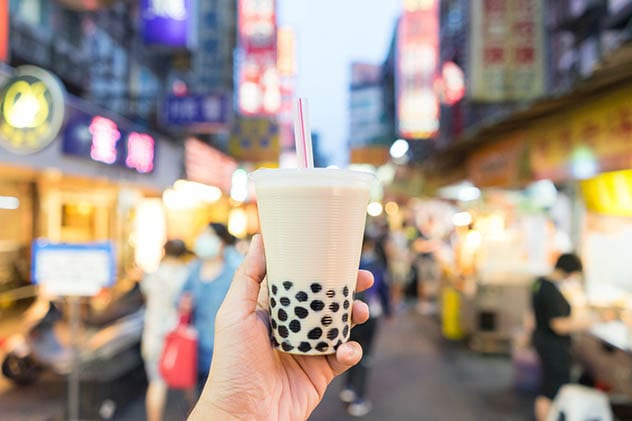
If you’ve ever stopped somewhere to drink some bubble tea, you can thank Taiwan for inventing it. The delicious drink was invented in the 1980s, and the oldest known version consisted of a mixture of hot Taiwanese black tea, condensed milk, syrup, and small tapioca pearls. Nobody knows who should get the credit for inventing it, which is due to conflicting stories. There are two claimants to its creation, though it’s unknown if the Chun Shui Tang tearoom in Taichung or the Hanlin Tea Room of Tainan’s claims are legitimate.
Regardless, bubble tea became immensely popular in Taiwan during the 1980s, but it took a while to move outside the country. Numerous variations arose soon after it was introduced, and by the 1990s, it was popular in places like Vietnam, China, and Malaysia. In the United States, the drink started becoming popular in the 1990s, though it was predominantly found in communities with large populations of Chinese and Taiwanese immigrants. These days, you can find it in specialty shops all over the country, though it’s commonly referred to as “boba” in the West, and “bubble tea” in the east.[1]
9 Taiwan Is China, But Not In The Way You Think
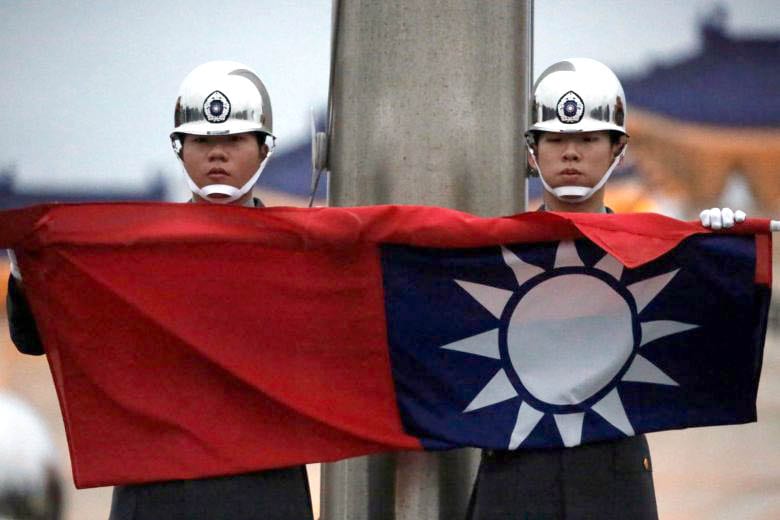
Like many island nations in the Pacific, Taiwan has a long history of international meddling, which began when the Dutch established a colony in 1624. By 1662, the Dutch were out, and in 1682, the island was annexed under the Qing Dynasty in China. Fast-forward to 1895, and the Empire of Japan was in control, but they lost the island at the end of WWII, leaving it to the Republic of China. In 1971, the mainland ROC changed its name to the People’s Republic of China, but since 1949, Taiwan has officially identified itself on the world stage as the ROC.
The relationship between the mainland ROC and Taiwan became problematic in 1949 when the Communists took over China. At that time, the legitimate ROC government fled to Taiwan and continued to govern as if they were representatives of China. In reality, they governed Taiwan and a small number of islands. Because of this, Taiwan maintains that it is the “real China,” having existed prior to the establishment of the PRC, which claims Taiwan as part of its government. As far as the rest of the world is concerned, there are two Chinas, and that has created a dangerous geopolitical situation.[2]
8 Taiwan Is Famous For Having The Stinkiest Tofu
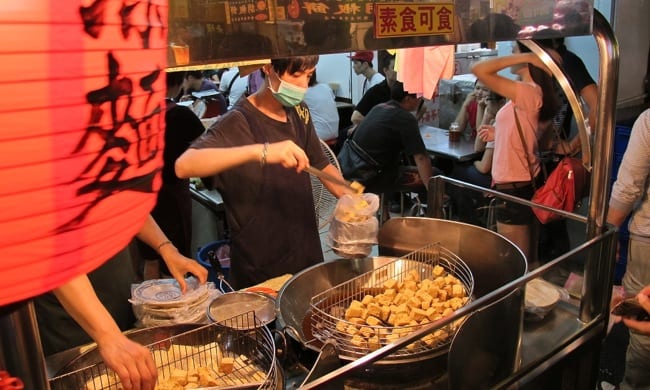
Every country is known for a particular dish its people enjoy more than anything, and for Taiwan, it’s a special kind of fermented tofu. The snack is literally called “stinky tofu” when translated into English, and the name is apt, as many people have described the stench as smelling like blue cheese or wet socks. To make it, non-stinky tofu is fermented for weeks or months in a special brine. When it comes out, it smells awful, which is mostly due to the components that go into the brine.
Most brine recipes include fermented milk, various meats, fish, and vegetables. Stinky tofu doesn’t just reek when you’re nearby; its smell can carry for as far as 300 meters, but the majority of Taiwanese folks love it. Stinky tofu isn’t typically sold in restaurants, so if you ever visit the country, you’ll have to check out some of its famous night markets. You can find the dish in any of these street markets, each with a distinct flavor and smell. They are often served fried with sides, including cucumber, pickled cabbage, chili, and soy sauce.[3]
7 Taiwan’s Involvement With The United Nations
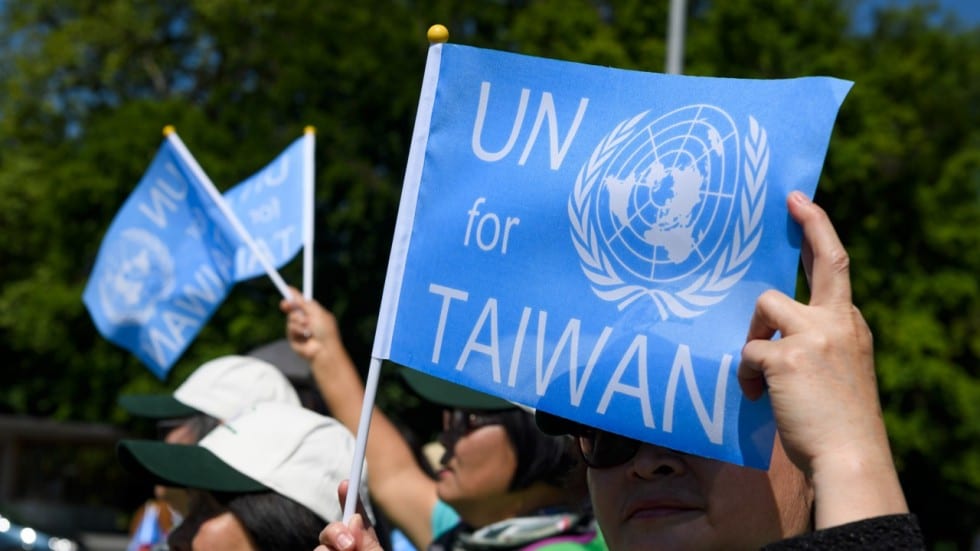
The United Nations was founded at the end of World War II, and at that time, Taiwan (as the Republic of China) was a founding member of the organization and a permanent member of the Security Council. Today, Taiwan isn’t even a member, and the reason for this has a lot to do with the Communist Party of China. Between 1945 and 1971, the Republic of China was a member of the UN General Assembly, but they were unceremoniously expelled in 1971 when Chiang Kai-shek, the leader of the ROC, refused to recognize the accreditation of the PRC as representatives of China.
Both governments continued to fight one another diplomatically for the right to represent China, but the PRC, which had rarely been recognized before the 1970s, won out in the end. The result was an abandonment of the argument over which government represented China and changed into how Taiwan was recognized on the world stage. Neither country recognizes the sovereignty of the other, which has resulted in the “Two Chinas” situation, and a troublesome problem for Taiwan where UN membership is concerned. The PRC, which holds a permanent seat on the Security Council, will not support the recognition of Taiwan, which it sees as a rogue state of the PRC.[4]
6 Taiwan Takes Its Trash Seriously
In most developed countries, people throw their garbage into a bin of some sort and wheel it out to the curb for the garbage collectors to come and take it away. Most people around the world don’t give their trash a second thought once they’ve left it out for collection. In Taiwan, people don’t take their trash to the curb for the garbage truck unless the truck is coming down the street at that moment, which begs the question, how do they know when to take out their trash?
Garbage trucks in Taiwan blast music in much the same way ice cream trucks play music to attract children in the West. The trucks arrive nightly, and they are loud, so the music is even louder, which makes it possible to hear it before it’s even heading down a person’s street. If someone doesn’t get their trash out in time for the garbage truck, they’ll be stuck with it until the following night. In terms of the music they play, it’s anything from Beethoven’s “Für Elise” to the latest hits in Kpop and other popular music.[5][6]
10 Ways You Are Ruled By Communist China
5 Donald Trump Broke Precedent Regarding Taiwan Soon After His Election
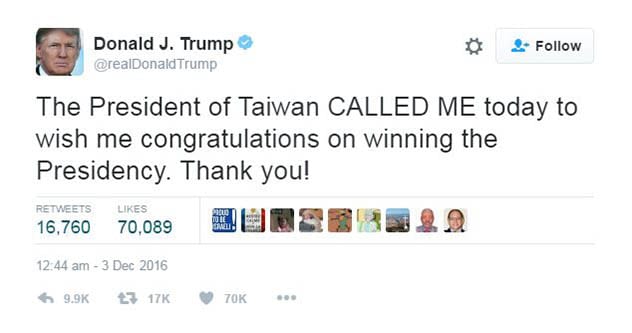
There’s not a lot that US President Donald Trump does that conforms with the expectations of someone who holds his office, but there are some lines no previous administration has ever crossed. One such line deals with Taiwan, and the United States’ stance towards its recognition. Since 1979, the United States and Taiwan have not had official political relations, and like the rest of the world, the US doesn’t recognize Taiwan as an independent country. This is largely out of fear of Communist China, which has declared it will cease all diplomatic relationships with any country that does so.
As a result, no United States President has done so much as take a phonecall with a Taiwanese leader… that is, of course, until Mr Trump won the election in 2016. Shortly after the US election, Tsai Ing-wen, the President of the Republic of China, and leader of the Taiwanese Democratic Progressive Party got on the phone with President-elect Trump in a complete break in US policy. This was especially significant due to the DPP’s pro-independence stance. The call was so problematic, there’s even a Wikipedia page devoted to it, but no significant political fallout came from their conversation.[7]
4 Taiwanese Women Avoid Direct Sunlight
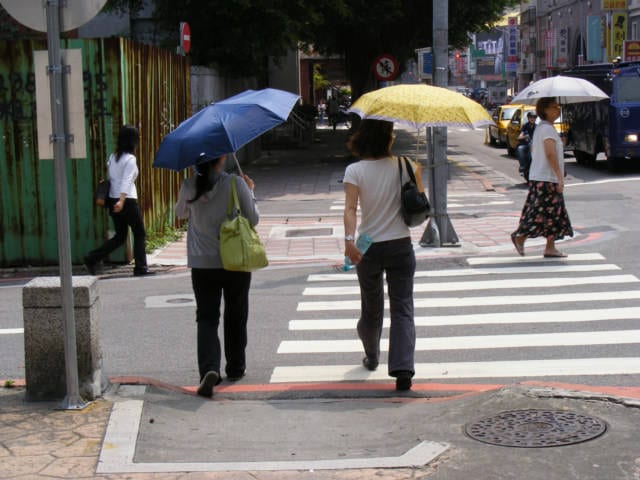
No, they aren’t vampires, but the vast majority of Taiwanese women don’t go uncovered when the sun is out, and it’s entirely for cultural reasons. Most Taiwanese women prefer to have as fair a complexion as possible, so you won’t find many tanning booths in the country. On any given day, it’s normal to see hundreds of umbrellas out when the sun is shining. The ideal look involves very light-colored skin, so to achieve this, most women will carry umbrellas with them whenever they leave the house — rain or especially shine.
Umbrellas are common all over the island, but the fight against the tanning rays of the sun don’t end there. Many women will cover their entire bodies, even in the hottest weather. They will go out with sunglasses, a hat, long pants, long-sleeved shirts, and often, gloves. All of that goes with an umbrella, no matter how hot it is outside. This practice isn’t unique to Taiwan and is found in mainland China, Vietnam, and other countries, but it is prevalent throughout the whole island and a common sight in the country, which produces 30% of the world’s umbrellas.[8][9]
3 President Trump Has Taken Steps To Improve Taiwan-US Relations
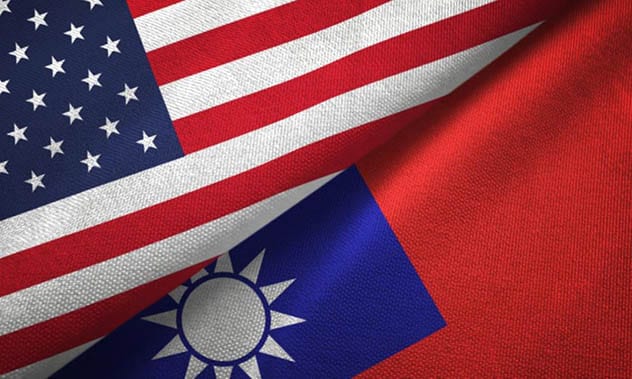
Since Donald Trump took office, he has taken various steps in supporting Taiwan through the passage of laws and the implementation of trade deals Beijing has vociferously opposed. His first move came when he took the phone call from Tsai Ing-wen, but the first significant move came in 2018 with the passage of the Taiwan Travel Act. The new law made it possible for government representatives of the United States to visit Taiwan and vice versa. This was the first law of its kind since 1979’s Taiwan Relations Act, which established non-diplomatic relations between the two countries.
In March 2020, President Trump signed the Taiwan Allies International Protection and Enhancement Initiative (TAIPEI)[10] Act into law, making significant moves toward formal recognition of the country. The TAIPEI Act strengthened the official and unofficial relations with the country and outlined a provision enabling the US to work as an advocate in gaining Taiwan membership in international organizations. Trump continued angering Beijing when, in March 2020, he authorized a $180 million arms sale to Taiwan in the form of eighteen MK-48 Mod6 Advanced Technology Heavy Weight Torpedoes and related equipment.[11]
2 Taiwan Is One Of Four Asian Tigers
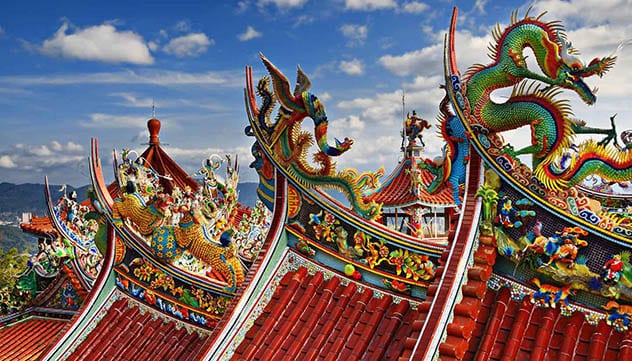
When the ROC fled to Taiwan, the island would best be described as a developing economy, and it would take some time for it to become the developed nation it is today. In the latter half of the 20th century, Taiwan experienced a rapid period of economic growth and development alongside Singapore, South Korea, and Hong Kong as part of the so-called “Four Asian Tigers.” For Taiwan, its growth came after the United States provided $4 billion in economic aid, making it possible for the nation to reboot its economy.
Between 1945 and 1965, Taiwan focused most of its attention on internal economic improvement through the passage of laws and the rapid expansion of agricultural products used for international trade. Additionally, the country focused on importing industrialization so the Taiwanese economy could create a protected market. When Taiwan was booted from the UN General Assembly in the early ’70s, the country focused on technology, and became a primary supplier to DEC and IBM, helping to kickstart Silicon Valley. By the 1980s, Taiwan was an economic power, and it has continued to remain as such to this day.[12]
1 Taiwan’s Night Markets Offer Some Of The Best Food On The Island
A common sight in Taiwan is the many night markets, which operate between sunset and sunrise. Most night markets feature a variety of places to get street food, though some, like the Huaxi Street Tourist Night Market, otherwise known as Snake Alley, are purpose-built marketplaces.[13] Snake Alley is found in Taipei and extends for two blocks in the Wanhua District, which is the oldest in the city.
The market was once known for the many delicacies composed of snake meat, but it has since diversified with offerings of snake blood, turtle blood, turtle meat, and deer penis wine, which you can’t find anywhere else.
Night markets are also one of the only places to find stinky tofu in its many forms, and they are found all over the island. Taiwan doesn’t hold the monopoly on night markets, as they began in the ninth century of China’s Tang Dynasty, though Taiwan’s markets are known around the world. They started as much smaller marketplaces for predominantly urban customers in the 1950s but expanded over time to become more prosperous and viable as stable businesses serving tourists and locals alike.[14]
10 Reasons Why Communism Sucks

